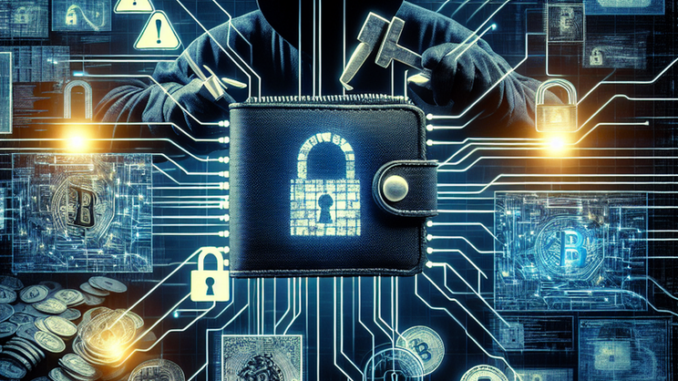
North Korea’s government-sponsored hackers have once again carried out bold cyberattacks, resulting in the theft of an incredible $600 million worth of cryptocurrency in 2023. These audacious attacks provide crucial funding for the sanctions-burdened country’s weapons programs. The hackers use advanced tactics, employing social engineering strategies to deceive targets and gain access to private keys and seed phrases used to secure digital wallets. Once inside, they quickly transfer the stolen assets to wallets under their control.
The scale of North Korea’s cyber theft is truly remarkable. According to blockchain analytics firm TRM Labs, attacks connected to the Democratic People’s Republic of Korea (DPRK) cause ten times more damage than non-North Korean attacks. Since 2017, North Korean hackers have successfully stolen around $3 billion, with the country responsible for almost one-third of all funds stolen in crypto attacks in 2023. Although slightly lower than previous years, the DPRK’s spoils still make up a significant portion of the stolen funds.
To avoid detection, North Korean hackers constantly adapt their tactics. When the U.S. Treasury Department sanctioned the crypto mixer service, Sinbad, for processing a portion of their illegal gains, the hackers quickly adjusted their approach. They now convert the stolen cryptocurrency into USDT or Tron and exchange it for hard currency through high-volume OTC brokers. This ability to change underscores the need for continuous vigilance and innovation from businesses and governments to counter North Korea’s hacking skills.
The impact of these cyberattacks on the cryptocurrency sector cannot be underestimated, with nearly $1.5 billion disappearing within just two years. To protect both assets and users, the industry must prioritize the implementation of strict security protocols, including multi-factor authentication, biometric verification, and regular security audits. Educating users about phishing attempts and promoting responsible online behavior can also reduce the risk of falling victim to social engineering attacks.
Governments play a crucial role in combating cyber threats. Collaborative efforts between countries to share intelligence and coordinate cyber defense strategies are essential. By pooling resources and expertise, governments can effectively disrupt the operations of threat actors, making it increasingly difficult for them to carry out successful attacks.
Regulatory bodies must also establish clear guidelines and frameworks for cryptocurrency exchanges and platforms. Implementing strong Know Your Customer (KYC) and Anti-Money Laundering (AML) procedures can help identify suspicious transactions and prevent the laundering of stolen funds.
As the cryptocurrency industry continues to grow and gain mainstream acceptance, the risks associated with cyberattacks will only increase. It is crucial that all parties involved, from individual investors to businesses and governments, remain watchful and proactive in defending against these threats.
North Korea’s cyber theft serves as a clear reminder of the ever-changing cybersecurity landscape. By staying ahead of threat actors and implementing robust security measures, the global cryptocurrency community can protect its assets and ensure a secure and prosperous future for digital finance. The fight against cybercrime requires unity, and it is through collective efforts that we can overcome the challenges posed by North Korea’s hacking abilities.

Be the first to comment